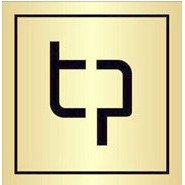Best Debt & Collection Lawyers in Phnom Penh
Share your needs with us, get contacted by law firms.
Free. Takes 2 min.
List of the best lawyers in Phnom Penh, Cambodia
About Debt & Collection Law in Phnom Penh, Cambodia
Debt & Collection law in Phnom Penh, Cambodia governs the rights and obligations of creditors and debtors in relation to unpaid debts. It outlines the legal framework for debt collection procedures and the rights of parties involved in debt disputes. It is important to understand these laws to protect your rights and ensure fair treatment in debt-related matters.
Why You May Need a Lawyer
There are various situations where seeking legal assistance for Debt & Collection matters in Phnom Penh, Cambodia is recommended:
- If you are being sued by a creditor for an unpaid debt
- If you have been subjected to unfair or abusive debt collection practices
- If you need assistance negotiating debt repayment terms with creditors
- If you are considering filing for bankruptcy due to overwhelming debts
- If you want to understand your rights and obligations as a debtor
Local Laws Overview
In Phnom Penh, Cambodia, several key aspects of local laws are particularly relevant to Debt & Collection:
- Debt Agreement: Phnom Penh follows the Civil Code, which allows parties to enter into debt agreements that outline the terms, repayment schedules, and consequences of non-payment.
- Debt Collection Practices: The Law on Civil Procedures sets out the proper procedures for debt collection, including requirements for written demand letters, court actions, and enforcement of judgments.
- Consumer Protection: The Law on Consumer Protection safeguards consumers from unfair debt collection practices and protects their rights against deceptive or abusive actions by creditors.
Frequently Asked Questions
Q: Can a creditor seize my assets for an unpaid debt?
A: Yes, creditors can seek legal action to recover unpaid debts and may request court orders to seize and sell your assets to repay the debt.
Q: Can I negotiate debt repayment terms with my creditor?
A: Yes, it is possible to negotiate debt repayment terms with your creditor. Legal assistance can help you navigate negotiations and ensure fair terms.
Q: Can I be arrested for non-payment of debt in Phnom Penh?
A: No, debtors cannot be arrested for non-payment of debt in Phnom Penh, Cambodia. However, creditors may pursue legal action to recover the debt.
Q: What are the consequences of filing for bankruptcy?
A: Filing for bankruptcy can provide relief to debtors by discharging certain debts or reorganizing payment plans. However, it can affect your credit rating and may require the liquidation of assets.
Q: How long can a creditor pursue legal action for an unpaid debt?
A: In Phnom Penh, Cambodia, the statute of limitations for pursuing legal action on unpaid debts is three years. After that period, creditors may be barred from taking legal action.
Additional Resources
For further assistance and information on Debt & Collection matters in Phnom Penh, Cambodia, you may consider contacting:
- Ministry of Justice: Website: www.moj.gov.kh
- Cambodian Bar Association: Website: www.barassociation.org.kh
- Consumer Protection Agency: Phone: +855 23 880 880
Next Steps
If you require legal assistance in Debt & Collection, it is advisable to:
- Gather all relevant documents and evidence related to the debt.
- Consult with a reputable lawyer specializing in Debt & Collection law.
- Discuss your situation and concerns with the lawyer to determine the best course of action.
- Follow the lawyer's guidance throughout the legal process.
Lawzana helps you find the best lawyers and law firms in Phnom Penh through a curated and pre-screened list of qualified legal professionals. Our platform offers rankings and detailed profiles of attorneys and law firms, allowing you to compare based on practice areas, including Debt & Collection, experience, and client feedback.
Each profile includes a description of the firm's areas of practice, client reviews, team members and partners, year of establishment, spoken languages, office locations, contact information, social media presence, and any published articles or resources. Most firms on our platform speak English and are experienced in both local and international legal matters.
Get a quote from top-rated law firms in Phnom Penh, Cambodia — quickly, securely, and without unnecessary hassle.
Disclaimer:
The information provided on this page is for general informational purposes only and does not constitute legal advice. While we strive to ensure the accuracy and relevance of the content, legal information may change over time, and interpretations of the law can vary. You should always consult with a qualified legal professional for advice specific to your situation.
We disclaim all liability for actions taken or not taken based on the content of this page. If you believe any information is incorrect or outdated, please contact us, and we will review and update it where appropriate.








